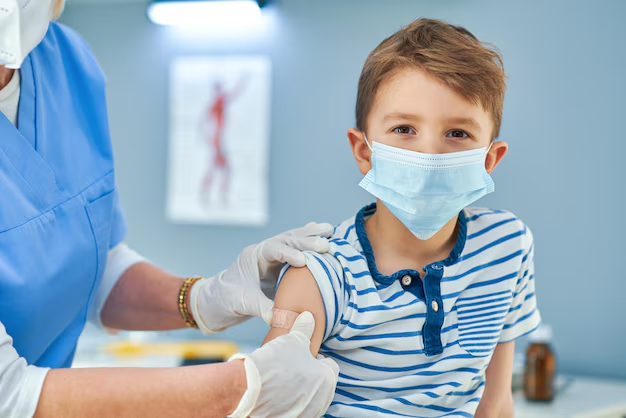Malaria Vaccination: What You Need to Know
Malaria has been a persistent threat in many parts of the world, especially in tropical regions where conditions breed the mosquito vectors that spread it. Each year, this disease claims hundreds of thousands of lives, particularly affecting children in sub-Saharan Africa. But with new advancements in medical science, there might be a ray of hope on the horizon. Is there really a vaccine for malaria? Let's explore what this could mean for global health.
Understanding Malaria
Malaria is an infectious disease caused by Plasmodium parasites, which are transmitted to humans through the bites of infected female Anopheles mosquitoes. Once in the human body, the parasites multiply in the liver before infecting red blood cells. Common symptoms include fever, chills, flu-like illness, and if not treated promptly, it can lead to severe complications and even death.
Key Points:
- Malaria is preventable and treatable but poses a significant humanitarian and economic burden in many countries.
- It primarily affects low-income regions lacking access to effective healthcare.
The Quest for a Malaria Vaccine
For decades, the scientific community has been on a quest to develop a vaccine for malaria, something that has proved challenging due to the complex life cycle of the Plasmodium parasites. Until recently, efforts have been limited, but notable progress has been made.
RTS,S/AS01 (Mosquirix)
The World Health Organization (WHO) endorsed the RTS,S/AS01 (Mosquirix) malaria vaccine in 2021 for children in regions with moderate to high transmission. This marked a significant breakthrough in the fight against malaria.
Features of RTS,S/AS01:
- Target Group: Primarily children aged 6 weeks to 17 months.
- Effectiveness: On average, about 30% efficacy against severe malaria in children.
- Administration: Requires four doses to offer the best protection: three doses one month apart and a fourth dose after 18 months.
The RTS,S/AS01 vaccine represents an important tool in the arsenal against malaria, although it is not the silver bullet and must be used in conjunction with other control measures like bed nets and insecticides.
R21/Matrix-M
Another promising candidate, the R21/Matrix-M vaccine, has recently shown encouraging results in clinical trials. With potential efficacy rates higher than Mosquirix, it is undergoing further testing to confirm its safety and effectiveness.
What Sets R21/Matrix-M Apart:
- Preliminary Results: Higher efficacy in early trials compared to previous vaccines.
- Potential Impact: Could potentially offer stronger protection, especially in young children.
Complementary Prevention Strategies
While vaccines offer hope, they are only one part of the answer. Comprehensive malaria control must involve several strategies:
- Insecticide-Treated Nets: Vital in reducing contact with mosquitoes, particularly during sleep.
- Indoor Residual Spraying (IRS): Periodic spraying of insecticides inside homes to kill mosquitoes.
- Protective Clothing and Repellents: Personal preventive measures that reduce mosquito bites.
Challenges and Considerations
While a vaccine is a monumental step forward, there are still hurdles to overcome.
Accessibility and Distribution
Reaching remote communities where malaria is most prevalent poses logistical challenges. Ensuring that vaccines are available and administered in these areas requires significant resources and robust healthcare systems.
Vaccine Hesitancy
As with any new medical intervention, addressing vaccine hesitancy is crucial. Public health education, community engagement, and transparent communication about vaccine safety and efficacy are paramount to building trust.
Cost and Funding
Financing vaccination programs is essential. Many regions affected by malaria are economically disadvantaged, necessitating international support from governments and global health organizations to fund vaccine distribution and administration.
What Lies Ahead?
The endorsement and implementation of malaria vaccines signal an exciting new chapter but aren't a substitute for existing methods of control.
Integrating New Tools
The integration of vaccines should enhance existing strategies, creating stronger, layered defenses against malaria. Policymakers and health organizations must work together to devise effective programs that include vaccines while bolstering other preventive measures.
Future Research
Continuous research is vital to improving vaccine efficacy, lengthening protection duration, and possibly creating a universal malaria vaccine. Investment in future trials and studies will support these advancements.
Empowering Communities
Education and active community involvement are instrumental in the fight against malaria. Empowering local populations with knowledge about malaria prevention, the importance of vaccination, and ongoing support can drastically reduce the disease's impact.
Educational Initiatives:
- Informing communities via radio, social media, and local leaders about vaccine benefits.
- Training healthcare workers to administer vaccines and address concerns effectively.
Closing Insights
Malaria vaccination is no longer a distant dream but an emerging reality. While challenges remain, the advent of vaccines like RTS,S/AS01 and the promising R21/Matrix-M offer hope and the potential to save millions of lives. This development is a testament to what can be achieved when global communities unite in the face of shared threats. With vigilance, continued innovation, and cross-border commitment, we can look toward a future where malaria no longer dictates the destinies of so many communities worldwide.
Quick Takeaways:
- 🌍 Malaria is a major global health issue, especially in tropical regions.
- 💉 RTS,S/AS01 (Mosquirix) is WHO-approved for use in children in high-transmission areas.
- 🚀 R21/Matrix-M vaccine shows promise for stronger protection.
- 🎯 Effective malaria prevention combines vaccines with other strategies: bed nets, IRS, and repellents.
- 🌐 Global cooperation is essential for access, distribution, and funding.
- 🏥 Community education and involvement can empower local defenses against malaria.
With these tools and strategies, we stand at the brink of potentially reshaping the landscape of global health concerning malaria, bringing us closer to a world where this disease is no longer a death sentence but a managed, preventable condition.

